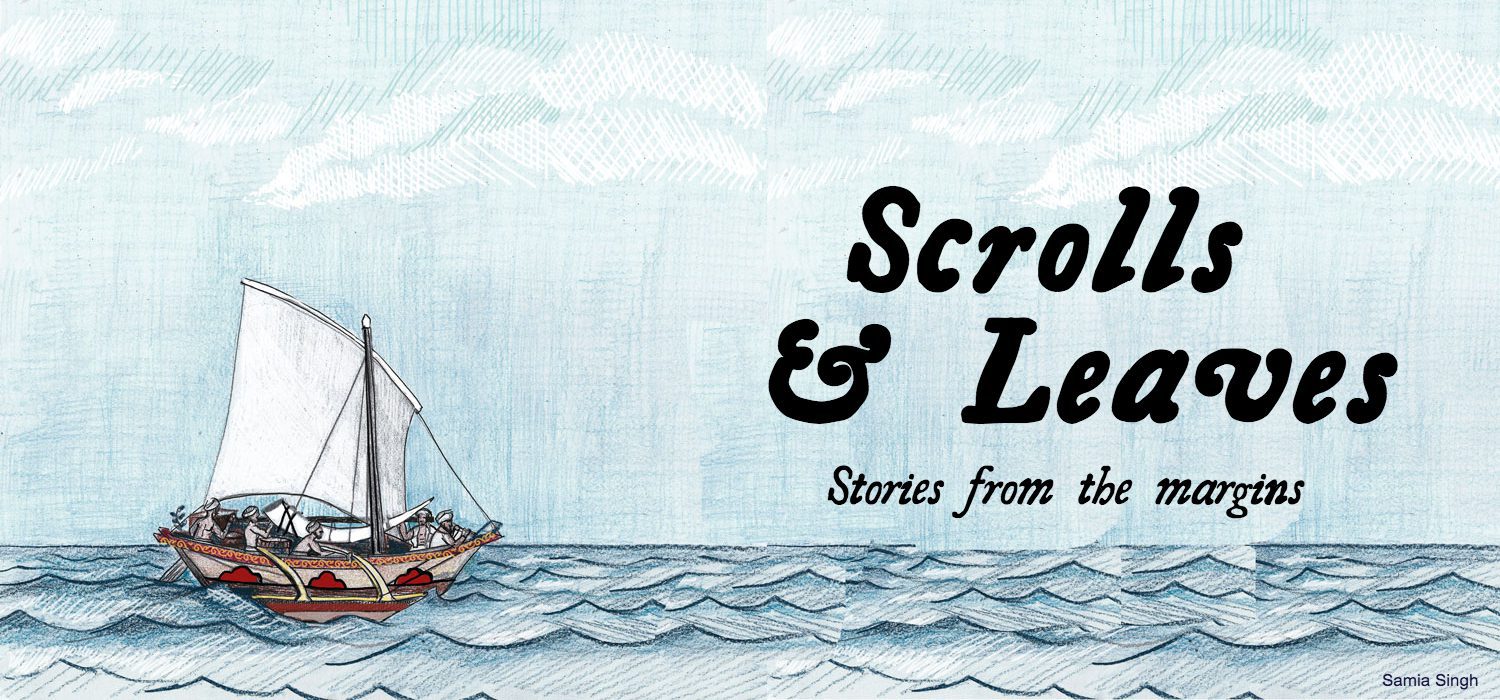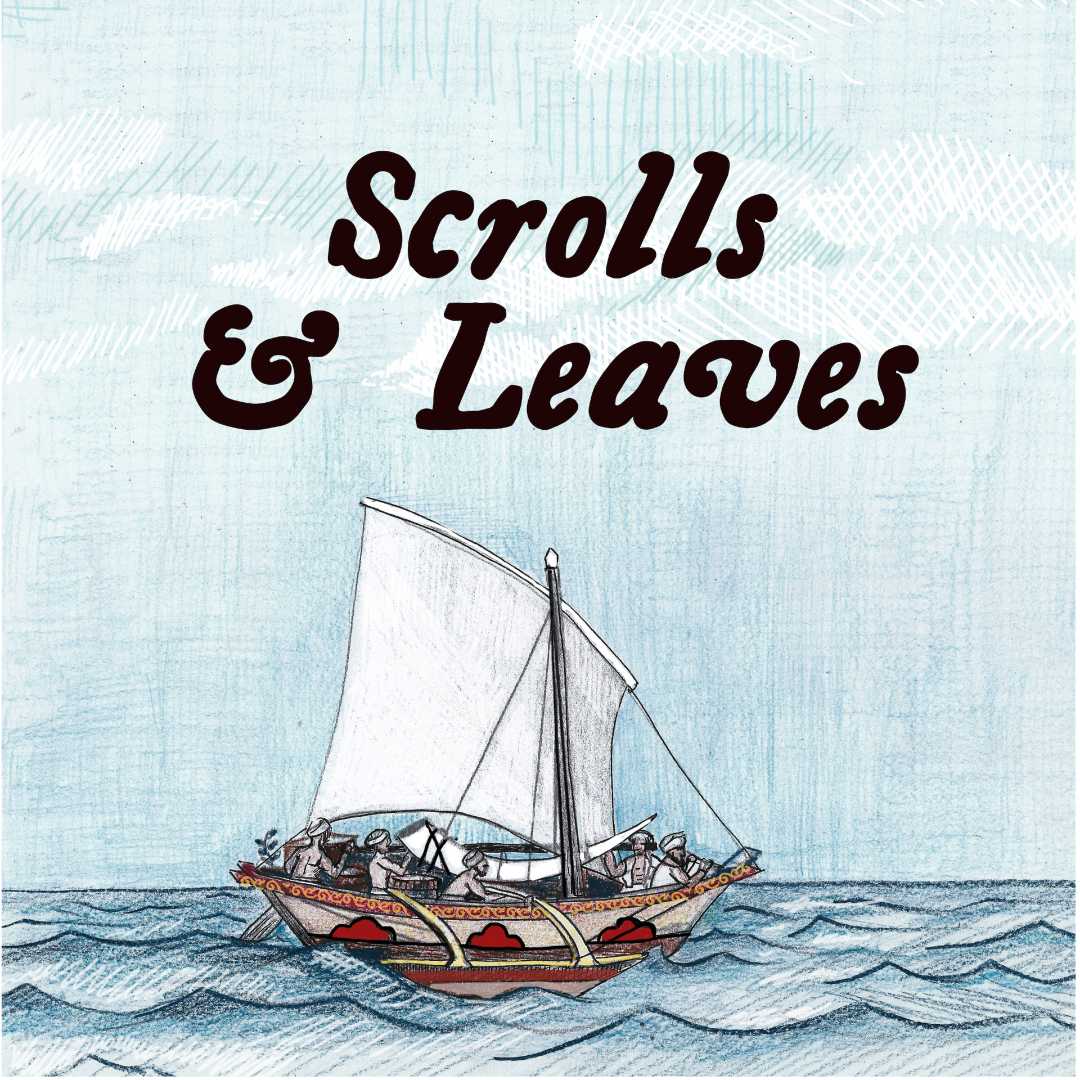
Scrolls & Leaves was a world history podcast narrating stories from South Asia of colonialism, science and cultures. Created by journalists Gayathri Vaidyanathan and Mary-Rose Abraham, and sound artist Nikhil Nagaraj, it received numerous accolades, including being long-listed for a One World Media award and receiving a sound design award from the Asian American Podcast Association. It was a listener favorite. It was supported by the National Centre for Biological Sciences, Yale University’s Order of Multitudes program and individual donors. It wrapped up in 2022, but you can explore the episodes on all podcast platforms and YouTube.
Season 1: Trade Winds
How movement across the Indian Ocean changed the world
Listen
About

Epic histories from the developing world, through the eyes of the marginalized. Hear about ambitious Emperors, cunning corporations that colonized half the world, the treasure ship of an infamous sci-fi writer, and other tales, in Season 1: Trade Winds. Journalists Gayathri Vaidyanathan and Mary-Rose Abraham tell stories about colonialism, science and cultures. This binaural (3-D) sound podcast will immerse you in the past.
Meet the hosts

Mary-Rose Abraham

Gayathri Vaidyanathan
Long-time audio producers and journalists, Mary-Rose and Gayathri enjoy few things as much as hearing intriguing tales from history. They think these stories can help make sense of our sometimes-inexplicable world.